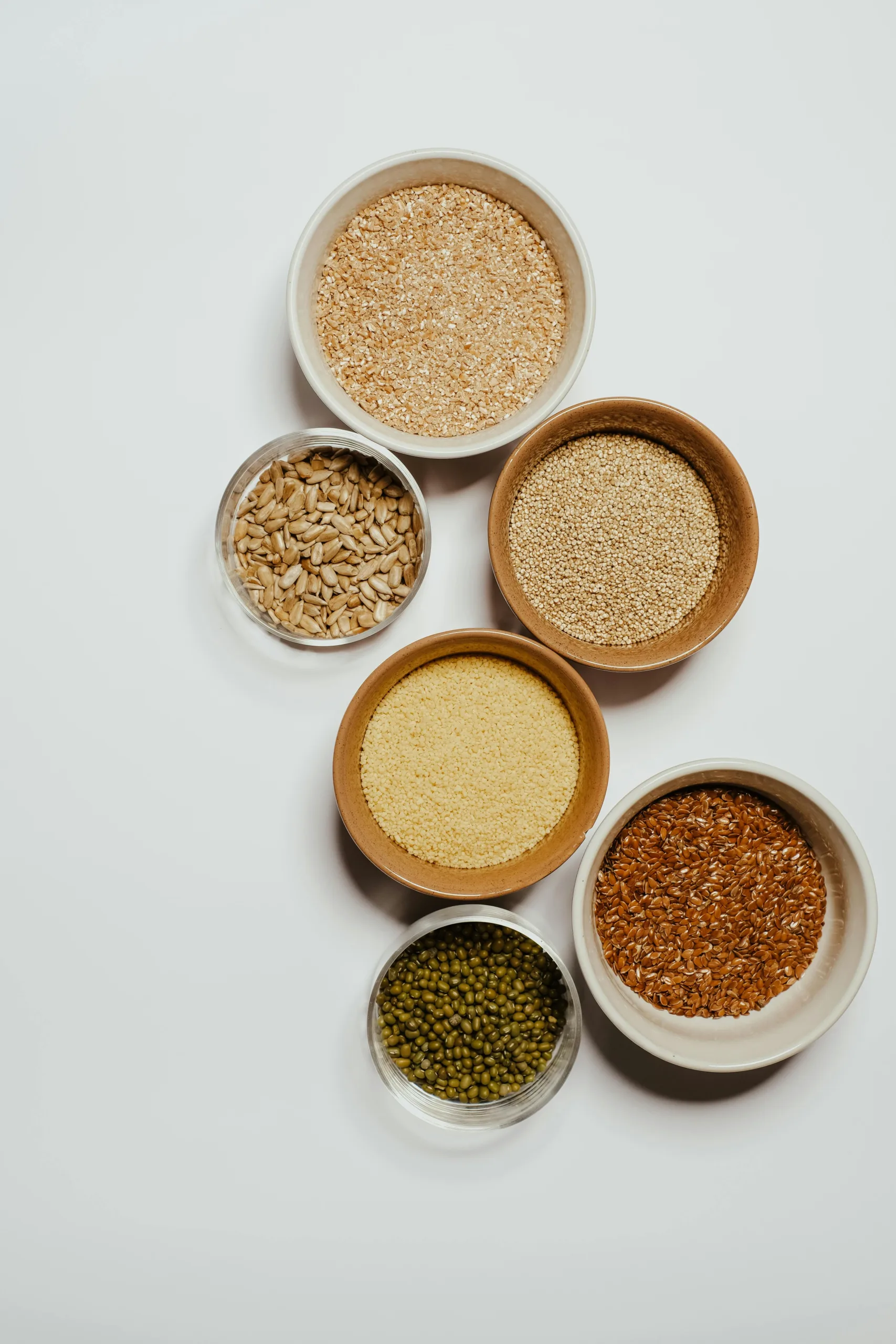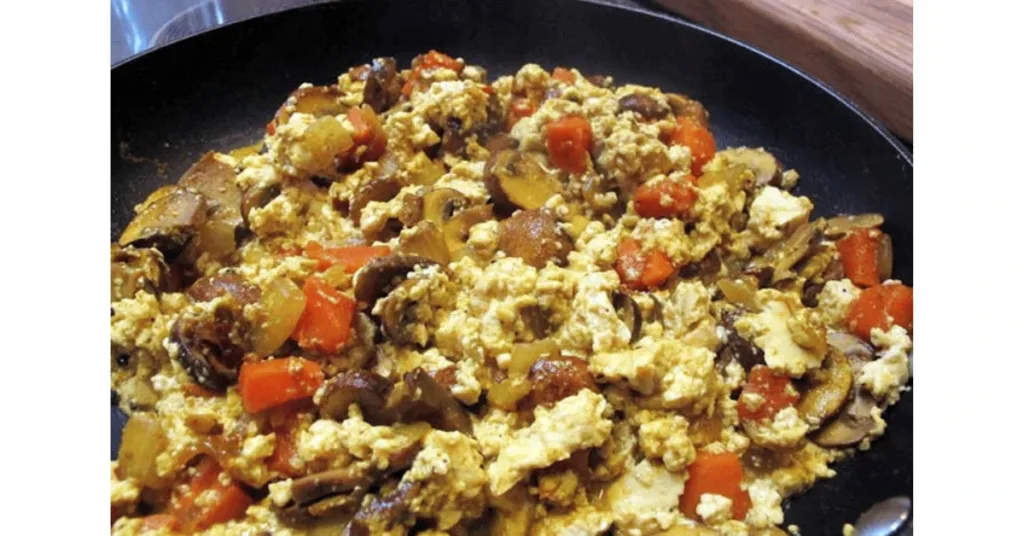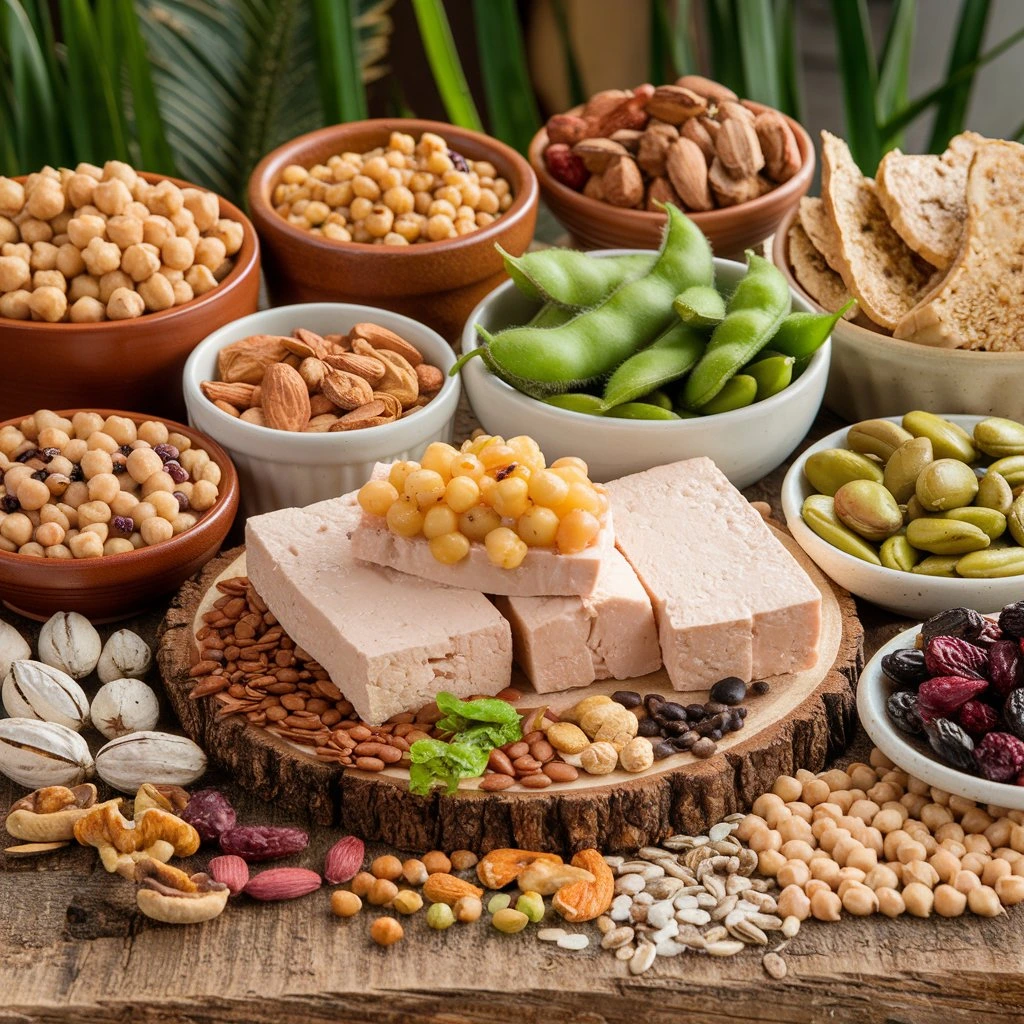A 2025 Guide to a High-Protein Plant-Based Diet

Welcome to your 2025 guide on a high-protein plant-based diet.
More athletes and health enthusiasts are using plants to power their bodies and reach top performance.
It’s true!
A high-protein plant-based diet isn’t just trendy. It’s a wise choice for building muscle, losing weight, and boosting your health.
Forget the myths about needing meat for protein.
Let’s explore the thrilling world of plant-based foods. They will keep you energised and strong!
Prepare to find a delicious and ethical way to meet your protein needs.
Understanding Protein in a Plant-Based World
Ever wondered if you can get enough protein without relying heavily on animal products?
Well, you’re in for a treat!
More people, from everyday individuals to top athletes, recognise the numerous benefits of a high-protein plant-based diet. It’s not just about salads, my friends!
We’re discussing tasty meals that help you build muscle, feel energised, and support a healthier planet.
So, let’s ditch those outdated myths and explore the amazing possibilities together!
Let’s Talk Protein: Understanding Protein in a Plant-Based World
Now, I know what some of you might think: “But where do you get your protein?” It’s a common question; it used to be mine, too! But trust me, the plant kingdom is brimming with protein powerhouses.
Let’s explain some key ideas about understanding protein in a high-protein, plant-based diet.
- Busting those protein myths: First, let’s squash the idea that you need meat to get enough protein. That’s not true! Many plant-based foods are rich in this essential nutrient.
- The “complete” protein puzzle in a high-protein plant-based diet: You may have heard of “complete” and “incomplete” proteins. We call animal proteins complete. They possess all nine necessary amino acids. Some plant-based proteins might be lower in one or two of these. Eating various plant foods daily provides your body with essential amino acids. It’s like building a complete puzzle with other pieces!
- An abundance of plant-based protein sources: Seriously, the options are incredible! We’re talking about hearty lentils, creamy chickpeas, versatile Tofu, and crunchy nuts and seeds. You’ll be amazed at the delicious ways to incorporate protein into a plant-based diet.
- The great perks of plant-based protein: Here’s a secret: Plant-based protein has extra benefits! You usually get more fibre, vitamins, and minerals from plants than animal protein. Additionally, they often contain less saturated fat. It’s a win-win!
- Becoming a protein-combining pro on a high-protein plant-based diet: Remember that puzzle analogy? Pairing plant-based foods can help you get all the amino acids you need. For example, eating beans with rice creates a complete protein. However, your body is smart enough to get what it needs if you eat a varied diet.

Tofu Veggie Scramble
Top Plant-Based Protein Powerhouses
Now for the exciting part: let’s talk about the rockstars of the plant-based protein world!
- Legumes: Your trusty protein allies: Think lentils, chickpeas, and all kinds of beans – black, kidney, pinto, you name it! And don’t forget edamame!
- These guys pack you with protein and fibre, keeping you full and satisfied.
- They’re also super versatile! You can mix them into tasty dips, such as hummus, or use them in salads, stews, and soups.
- Tofu and Tempeh: Soy is amazing! These soy-based options are nutritional powerhouses.
- Tofu is like a blank canvas, soaking up any flavour you throw at it. Tempeh has a nuttier, firmer texture.
- Both are high in necessary amino acids and protein. They are great for a high-protein plant-based diet.
- Nuts and Seeds: Tiny but mighty! Almonds, walnuts, chia seeds, flax seeds, pumpkin seeds, sunflower seeds – the list goes on!
- Don’t underestimate these little guys! They offer a good amount of protein along with healthy fats and fibre.
- Sprinkle them on your oatmeal, add them to smoothies, or grab a handful for a quick and nutritious snack.
- Grains: Not just carbs! Quinoa is a complete protein, which is pretty awesome! Oats and even some types of wheat also contribute to your protein intake.
- These grains provide more than energy; they offer valuable protein and fibre.
- Have them for breakfast, lunch, or as a side dish for dinner.
- Vegetables are unexpected protein heroes! Although spinach, broccoli, peas, and Brussels sprouts may not seem like a top protein source, they help!
- The protein density may be lower, but every bit counts. They are rich in other essential nutrients.
- Load up your plate with a variety of colourful vegetables!
- Protein Powders: Your plant-based boost! Pea, soy, brown rice, and hemp protein powders can be super convenient.
- They’re a great way to boost your protein intake, especially after a workout or when busy.
- Experiment with different types to find your favourite!

Crafting Delicious High-Protein Plant-Based Meals
Now that we know the players, let’s talk about strategy! How do you put together tasty, protein-packed plant-based meals?
- Think balance: Eat meals with a good protein source, healthy fats, and complex carbohydrates.
- Meal planning helps a lot. By planning your meals, you can easily get enough protein each day.
- To add more protein, sprinkle hemp seeds in your smoothies, toss nutritional yeast into pasta, or mix chopped nuts into salads.
- Don’t fear the fullness! Plant-based foods are often high in fibre, which helps you feel satisfied and full for longer.
- Get inspired with recipes: There are tons of amazing high-protein plant-based recipes! Explore cookbooks, blogs, and social media for ideas.
Decoding the Numbers: Meeting Your Protein Needs: How Much is Enough?
We’ve explored your protein needs for a successful high-protein plant-based diet.
Smooth Sailing Ahead: Overcoming Challenges and Common Mistakes on Your High-Protein Plant-Based Diet
Okay, let’s be honest – sometimes, the plant-based path isn’t always a perfectly paved road. Be aware, and you can tackle these everyday challenges with your high-protein plant-based diet:
- Addressing the “But Where Do You Get Your Protein?” Question (Again!) on Your High-Protein Plant-Based Diet: You’ll likely hear this question. A lot. But now you’re armed with the knowledge of all the excellent plant-based protein sources! Be prepared with your list of legumes, Tofu, nuts, seeds, and other ingredients. You’ve got this!
- Steer Clear of Nutritional Pitfalls on Your High-Protein Plant-Based Diet: A high-protein plant-based diet is nutritious and good for you. Pay attention to iron, calcium, vitamin B12, and omega-3 fatty acids. Consider a B12 supplement, as it’s not readily found in most plant-based foods. A varied diet with fruits, vegetables, and whole grains will help you avoid shortages in your high-protein plant-based diet.
Your High-Protein Plant-Based Diet
- Your high-protein, plant-based diet may suffer when you dine out or attend social events. Don’t be afraid to research the menu beforehand or ask questions. Many restaurants now have tasty plant-based choices. Your friends and family will likely support you. Bring a tasty plant-based dish to share!
- Transitioning to a High-Protein Plant-Based Diet: You can gradually change your diet. Begin by including more plant-based dishes in your week and altering things progressively. This can help your high-protein plant-based diet feel easier and more sustainable.
- Clearing Up Myths About Your High-Protein Plant-Based Diet: Many people hold outdated or inaccurate ideas about plant-based diets. Stick to reliable sources, such as registered dietitians, reputable health organisations, and evidence-based websites. Don’t let myths hold you back from the fantastic benefits of your high-protein plant-based diet.
- Not Eating Enough Calories on Your High-Protein Plant-Based Diet: Some might focus too much on protein early on. This can result in insufficient overall calorie intake. Ensure you consume a sufficient amount of healthy fats and complex carbohydrates. They help fuel your body and ward off fatigue on your high-protein, plant-based diet.
- Don’t Rely Too Much on Processed Plant-Based Foods: While some plant-based options are good, focus mainly on whole foods. Include fruits, vegetables, legumes, grains, nuts, and seeds. This will enhance the nutritional value of your high-protein plant-based diet.
Conclusion
Adopting a high-protein plant-based diet in 2025 is possible. It benefits both your health and the planet.
Knowing protein-rich plant foods can help you meet your daily protein needs. With thoughtful meal planning, you can enjoy a tasty and varied diet.
Ready to unlock the power of plants and fuel your body the green way? Explore these excellent protein sources today. You’ll find a healthier, more vibrant you!

1 thought on “A 2025 Guide to a High-Protein Plant-Based Diet”